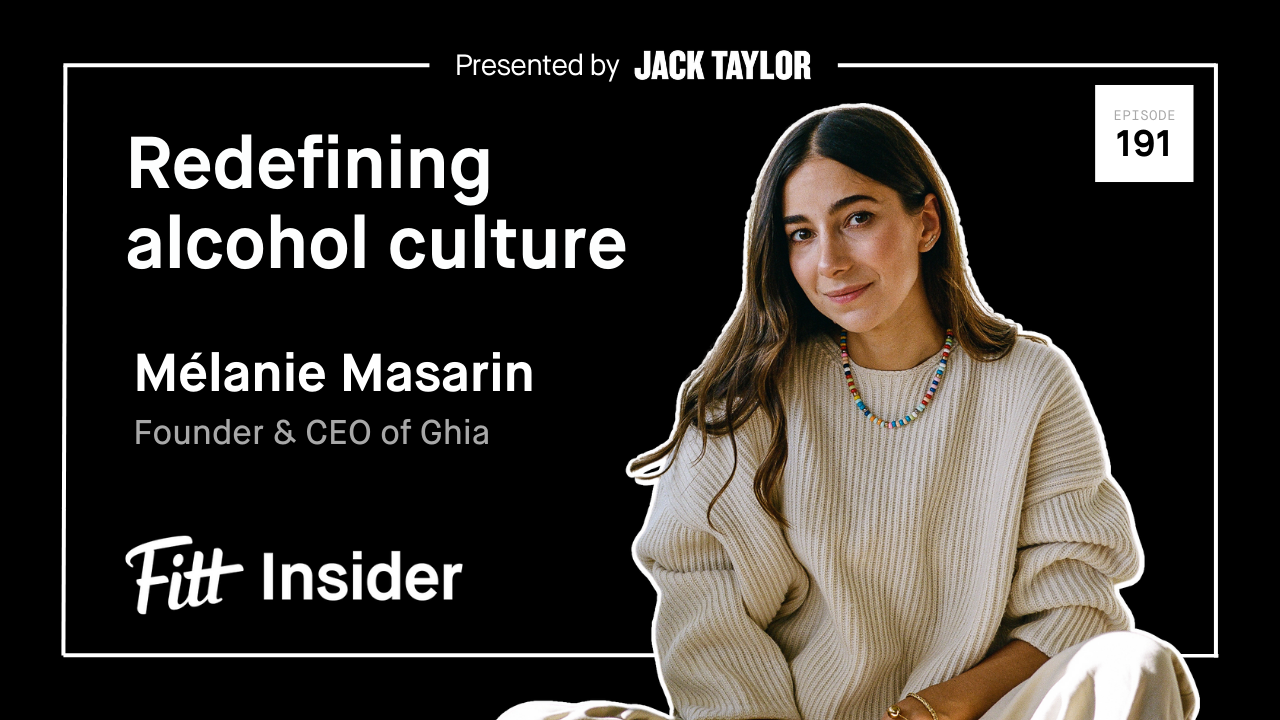Some of the most significant factors impacting our health often go unseen.
Smoke Signals
As wildfires rage across Canada, smoke blanketed parts of the US last week, sounding the alarm over poor air quality.
Prompted by viral photos of a hazy, dystopian NYC skyline, the often-ignored subject vaulted into the mainstream consciousness.
- June 7th was the worst wildfire-related smoke event in the US since at least 2006.
- Google searches for “air purifier” increased by 450%+ between Wednesday and Thursday last week.
- Poor air quality indices (AQI) led to an uptick in 911 calls and ER visits across New York, DC, and Philadelphia.
Reminiscent of the pandemic, city officials asked residents to stay inside, canceling many outdoor events, while some individuals who ventured out opted to wear a mask.
Nothing new, smoky skies are the latest reminder of just how harmful air pollution can be.
- Air pollution causes 6.7M premature deaths worldwide yearly, per the WHO.
- Polluted ambient air increases the risk of cancer, dementia, and cardiovascular disease.
- Poor air quality is linked to absenteeism, impaired cognitive function, and declines in athletic performance.
But, despite stark warnings and serious implications, as the smog enveloping the Northeast subsided, concerns over the effects may disappear with it.
For-ev-er
Following similar logic, as long as the harms remain out of sight, we’ve put the issues of contaminated food, water, and everyday products out of mind.
Air quality aside, per- and polyfluoroalkyl substances (PFAS) have become staples of modern society.
- As many as 200M Americans are exposed to PFAS in their tap water.
- Nearly all Americans (98%) are believed to have some level of PFAS in their blood.
- Exposure to PFAS is linked to immune system damage, thyroid disease, high cholesterol, and cancer, as well as an increased risk of diabetes, obesity, and infertility.
Developed in the 1940s these compounds are widely used in non-stick cookware, food packaging, and water-/stain-resistant fabrics. Dubbed “forever chemicals” because they are persistent in the environment and accumulate in the body, calls to limit exposure are growing louder.
In March, the EPA proposed drinking water regulations aiming to reduce PFAS levels for the first time. But, the plan would only address six of more than 12K compounds.
Meanwhile, as manufacturers like 3M and DuPont battle billion-dollar PFAS lawsuits, brands from REI to lululemon to Nike have faced criticism over toxic clothing.
Toxic Treadmill
As public scrutiny grows, more companies have vowed to eliminate PFAS in the coming years.
A step in the right direction, Anna Reade, a scientist at the environmental group Natural Resources Defense Council, warns of challenges ahead:
“We cannot safeguard public health until we get off this toxic treadmill of regulating one PFAS at a time when thousands of other PFAS remain unregulated.”
More concerning, from plastics to heavy metals and pesticides to food additives, the cycle Reade speaks of extends far beyond forever chemicals alone.
Taking matters into their own hands, as wellness spending surges, consumers are pursuing an increasingly holistic approach to health that includes avoiding environmental toxins.
In particular, the majority of Gen Zers value brands committed to sustainability, with 73% willing to pay a premium for eco-friendly products. As a result, expect to see more companies pushing transparency and chemical-free marketing.
Meanwhile, because it’s difficult to test for, remove, or treat exposure to PFAS and other toxins, there’s also potential for direct-to-consumer diagnostics and protocols for reversing contamination.
Looking ahead: A bright spot, maintaining a healthy lifestyle—by eating well and exercising regularly—can help clear chemicals from the body. And the same goes for small steps like filtering water. So, while it’s important to avoid toxins when possible, it’s a slippery slope to becoming obsessed with the process.
🎙 On the Podcast

Ghia founder & CEO Mélanie Masarin discusses the growing thirst for nonalcoholic apéritifs.
We also cover: redefining alcohol culture and building a community-centric brand.
Listen to today’s episode here.
🩳 Performance-focused apparel brand Ten Thousand raises $21.5M
Founded in 2017, Ten Thousand offers no-nonsense, premium training gear for men.
Originating with the basics—like purpose-built workout shorts and shirts—the company’s assortment has expanded to include apparel across Train, Recover, Live, and Tactical categories.
After initially gaining traction with CrossFitters and military operators, with new capital secured, Ten Thousand has its sights set on becoming “the next great American activewear brand.”
Part of the plan, the company also announced a three-year partnership with Life Time, becoming the exclusive men’s apparel outfitter of its personal training staff. Of note, the gym operator recently signed Aussie activewear brand LSKD to outfit its female trainers.
Guy’s Gear
As the activewear category continues to grow along with the rise of functional fitness, guys are buying more workout gear, and brands are moving in.
- Founded in 2014, Rhone made waves as a lululemon alternative for men.
- Expanding beyond leggings, lululemon made growing its men’s business part of its strategic plan in 2019.
- From NOBULL to Alo to Gymshark, upstart brands are taking on the likes of Nike and lulu with activity-specific and performance-oriented apparel.
Elsewhere, while Vuori finds favor with women across the globe, the California activewear brand was founded on the lack of suitable men’s attire for a yoga class — growing a loyal following with “sensible” collections for everyday life.
Looking ahead: For its part, Ten Thousand says it has been profitable since 2020, and keeping up with demand has been a huge challenge. With a full war chest, the brand is scaling marketing efforts and ramping production to push the pace.
🥦 Prescribing food as medicine gains traction
Saving lives and curbing healthcare spending, medically prescribed meals are catching on.
For context: Still considered an “alternative” approach, the food we eat has a part to play in public health.
- 85% of US healthcare spending stems from diet-related chronic diseases.
- 78% of consumers say eating the right food can prevent and treat health problems.
- Medically tailored meals could save $13.6B/year and prevent 1.6M hospitalizations.
While Big Food companies push unhealthy products and Big Pharma fast-tracks miracle weight loss drugs, embracing food as medicine can prevent, manage, and, in some cases, reverse chronic illnesses.
Special delivery. New initiatives are removing barriers that derail healthy eating by enabling access and ensuring affordability.
- Instacart’s Health division debuted a medically tailored meals partnership with Boston Children’s Hospital in March.
- Last week, FarmboxRx unveiled a new food-as-medicine program to support those affected by SNAP benefit cuts.
- Today, Uber Health announced a physician-prescribed grocery delivery service for those recently discharged from hospitals.
Meanwhile, the White House is increasing access to fresh, healthy food, with some Rx meal programs gaining approval under Medicaid.
Fresh funding. With consumer interest surging, medically tailored meal marketplaces and care platforms are scaling up.
- Free From Market landed $2.1M in January for its digital healthcare platform that prescribes healthy meals and telenutrition for low-income adults.
- In April, medically tailored meals provider ModifyHealth added a strategic investment to its $10M Series B round from January.
- In May, bitewell raised $4M to help employers lower health insurance premiums through healthy food offerings.
- Around the same time, food-as-medicine meal delivery service Vitabowl secured $3M.
Elsewhere… On the food service scene, Sweetgreen, Farmer’s Fridge, and Whole Foods founder John Mackey’s Love.Life are trying to make choosing healthy an easier decision.
Punchline: Prescribing nutritious meals instead of reactively treating diseases could shift healthcare spending to prevention while having an outsized impact on well-being. Making the process as easy as ordering takeout is a step in the right direction.
📰 News & Notes
- Oura introduces Circles for social sharing.
- Garmin adds running dynamics, training load metrics.
- Want to shape the future of Fitt Insider? Here’s your chance.
- Know Labs unveils prototype forearm-reading glucose monitor.
- Fitt Jobs: Take on a new challenge in the health & fitness industry.
- All Sweetgreens to be automated in five years. [Re-read: Salad-slinging Robots]
- Fhitting Room opens first club under NYSC. [On the Pod: NYSC’s Kari Saitowitz]
- Wellness community Velvaere taps Fountain Life for residents’ preventative care.
- Longevity-focused wellness social club Saint Haven opens in AUS, set to expand.
💰 Money Moves
- Men’s activewear brand Ten Thousand secured $21.5M in a Series A round led by Provenance.
- Significo, a digital health platform for personalized health recommendations, raised $12M in a Series A round.
- HealthifyMe, an Indian startup using CGMs and AI coaching to improve well-being, secured $30M in a pre-Series D round.
- GetHarley, a personalized skincare telehealth platform, closed a $52M funding round led by Index Ventures.
- Skyr maker Icelandic Provisions landed $17.8M in a Series C round from Kvika Corporate Finance and Hamrar Capital Partners.
- BeMe, a behavioral health platform for teens, secured an undisclosed sum, bringing total funding to $17M.
More from Fitt Insider: Social Dilemma - Upperline Health, a value-based care company serving highest-risk patient populations, raised $58.3M in a funding round.
- Cardiac care company Karoo added $3.4M in a seed round.
- Afia Foods, a Mediterranean food producer, secured $3M in a Series A round.
- Cultivated pork product manufacturer Uncommon (fka Higher Steaks) raised $30M in a Series A round co-led by Balderton and Lowercarbon Capital.
- Ice Barrel, maker of cold therapy products, received a $265K investment from Anne Mahlum, founder of fitness concepts [solidcore] and Ambition.
On the Pod: Our conversation with Anne Mahlum - Canadian fertility clinic Twig Fertility closed $8M in a Series A round led by Rhino Ventures.
- NEXT Life Sciences, makers of a male contraception product, raised $1.55M in a funding round.
- Oova, a DTC fertility diagnostics company, secured $10.3M in a Series A round.
More from Fitt Insider: Our conversation with Oova CEO Amy Divaraniya - Anise Health, a culturally sensitive mental health platform for Asian Americans, raised $1.2M in a pre-seed round.
- Employee wellness and retention firm Keep Company raised $800K in a pre-seed round.
- Maternal and newborn health platform Pomelo Care secured $33M in seed and Series A rounds led by a16z.
- Cuzen Matcha, maker of a countertop matcha grinder, landed $3.6M in a Series A round.
- Mushroom-based alt-meat producer Meati Foods secured an undisclosed investment from baseball great Derek Jeter.
- Corporate well-being platform WebMD Health Services acquired employee wellness company Limeade.
- Range Bio, a biotech firm advancing personalized biomarker use cases, landed $5.2M in a seed round.






